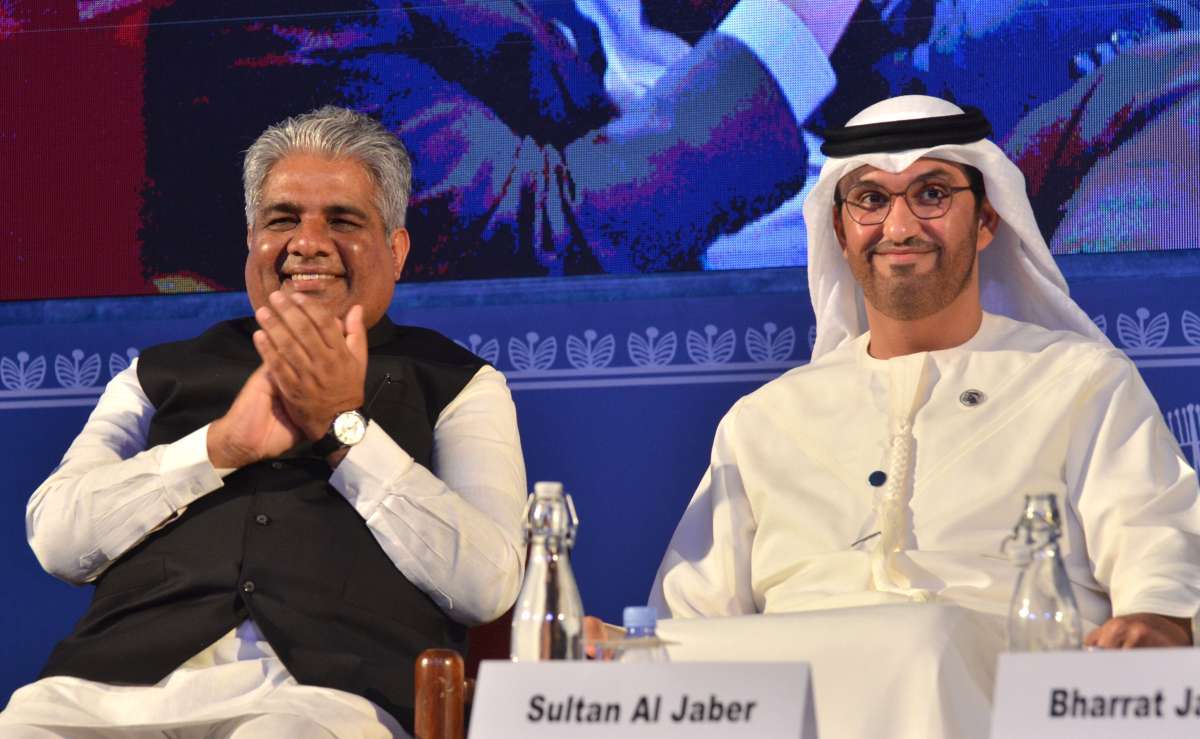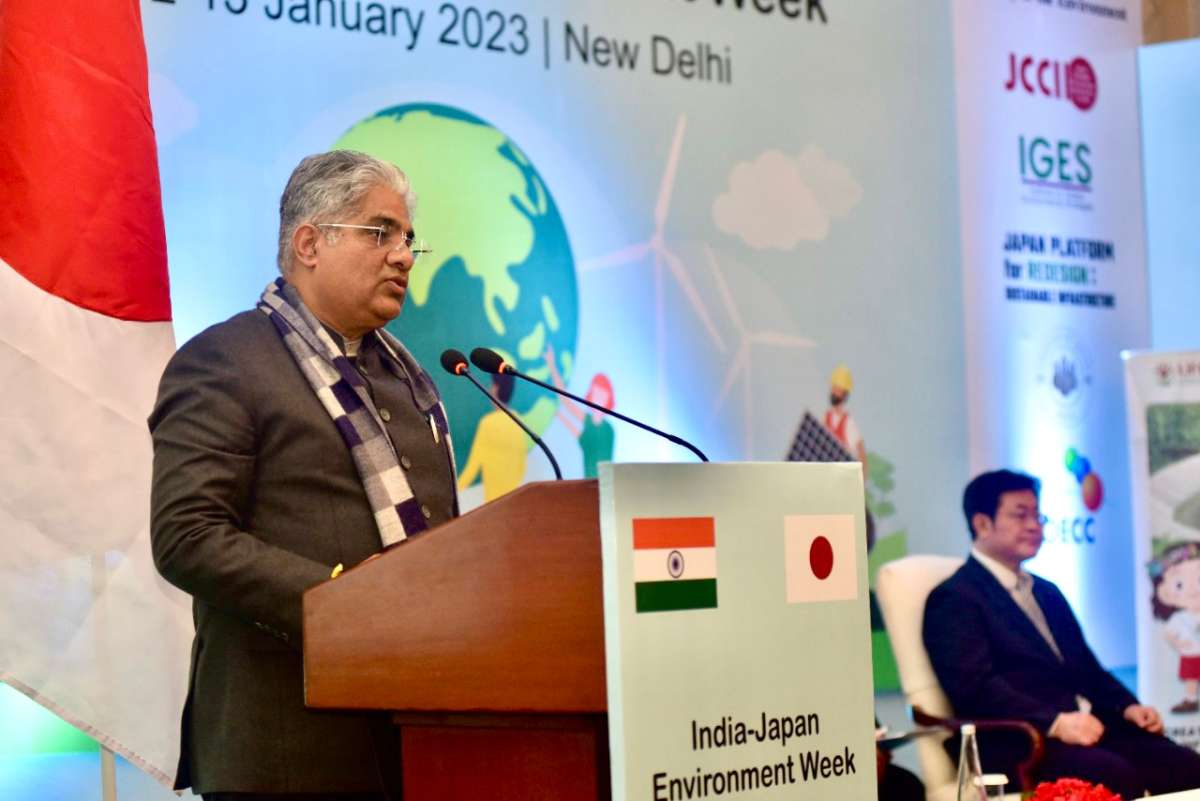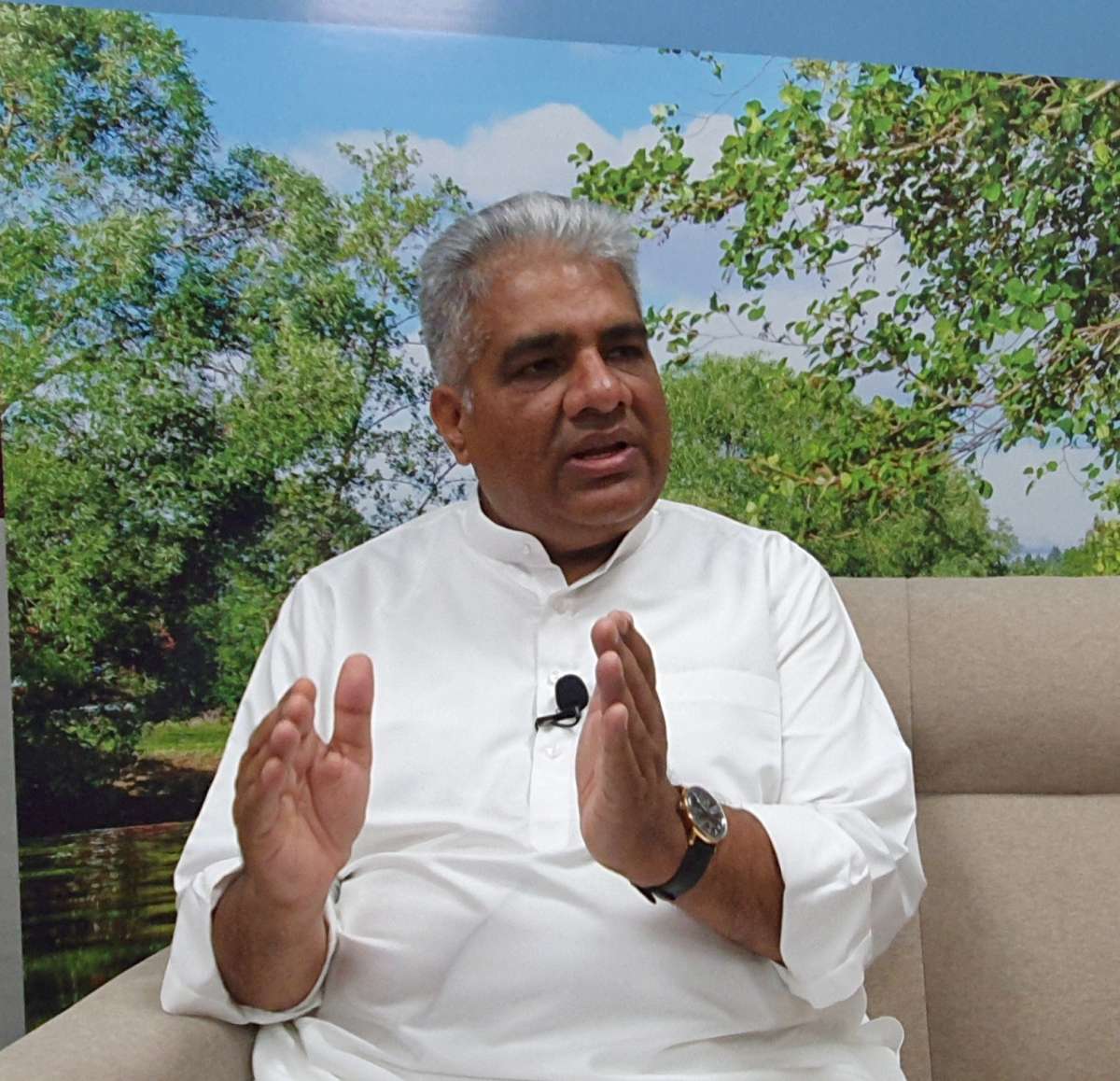He said that the second batch of cheetahs from South Africa was successfully introduced in Kuno National Park in Madhya Pradesh on 18th February 2023…reports Asian Lite News
Highlighting that the Union Budget 2023-24 laid down the vision for ‘Green Growth’, Union Minister for Environment, Forest and Climate Change Bhupender Yadav, today delivered the keynote address on Visionary Leadership for mainstreaming Sustainable Development and Climate Resilience at the inaugural session of the World Sustainable Development Summit 2023 held in New Delhi.
Speaking on this occasion Bhupender Yadav said that continuing last year’s theme and discussion, the Summit, this year is premised on “Mainstreaming Sustainable Development and Climate Resilience for Collective Action” which came at no better time when India has assumed the G20 presidency. He said that at a time, when the world is tackling the issues pertaining to climate action, environmental protection, and sustainable development, it is under the visionary leadership of Prime Minister Narendra Modi, that India is emerging as an inspiration for countries across the globe, particularly on the fact that how economic development and conservation of environment can go hand in hand.
Yadav said that the vision of Prime Minister Narendra Modi of correcting the ecological wrong into ecological harmony is taking shape by being reflected at the grassroots, where the successful implementation of Project Cheetah is an example among many.
He said that the second batch of cheetahs from South Africa was successfully introduced in Kuno National Park in Madhya Pradesh on 18th February 2023.
In his address, Bhupender Yadav further said that combating Climate Change, Biodiversity loss and land degradation transcends all political boundaries and hence is a shared global challenge. “On multiple occasions, both at the domestic and international stage, through evidence-based policy making and implementation, India, has demonstrated that it has never been a part of the problem but is contributing significantly to become a part of the solution,” he said.
Highlighting the provisions of Union Budget 2023 -24 presented in Parliament earlier this month, Yadav said that it lays down the vision for ‘Green Growth’ across multiple sectors, with the underlying thought being that all future growth in the country has to essentially be green. “With the concept of ‘Green Growth’ being a priority area in the Union Budget, it validates how sustainable development has been mainstreamed in the Indian policy-making process through a visionary approach”, said Yadav.
Speaking of India’s commitment to addressing climate change, Yadav said that India has already submitted its Long-Term Low Emission Development Strategy document at COP 27 in Sharm El Sheikh which is premised on two major pillars of climate justice and sustainable lifestyles alongside principles of CBDR-RC. With this India has joined the list of select 58 countries that have submitted their new or updated LT-LEDS.
The Union Environment Minister said that not only at the domestic level but at the international platform, particularly focusing on Climate Resilience, India has been helpful by providing valuable additional inputs, especially to small Island developing nations who are particularly vulnerable to rising sea levels. India has created and been nurturing the Coalition for Disaster Resilient Infrastructure.
“India has been making concerted efforts to engage various stakeholder institutions and individuals to promote innovation and resilience in infrastructure” he added
One such initiative is the “DRI Connect” which will be a web-based platform for stakeholders engaged in infrastructure sectors. The platform is envisaged to harness the collective intelligence of Coalition membership towards the creation of new knowledge and actionable solutions to address challenges in resilient infrastructure and foster an environment of action-based learning and innovation on disaster-resilient infrastructure.
Bhupender Yadav emphasised that building upon the announcements made at COP 26 in presence of the Prime Minister, Infrastructure for the Resilient Island States as a part of CDRI has been critical in achieving sustainable development through a systematic approach to resilient, sustainable, and inclusive infrastructure for Small Island Developing Countries.
Union Minister Yadav said that the voice of the Global South Summit launched by PM Modi, which saw the participation of 134 countries distributed across 10 sessions gave the global south a platform to discuss the pressing concerns of the developing world. This was yet another testimony of India’s leadership, especially becoming the leading voice for the global south. (ANI)



